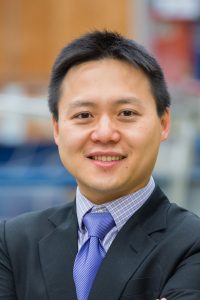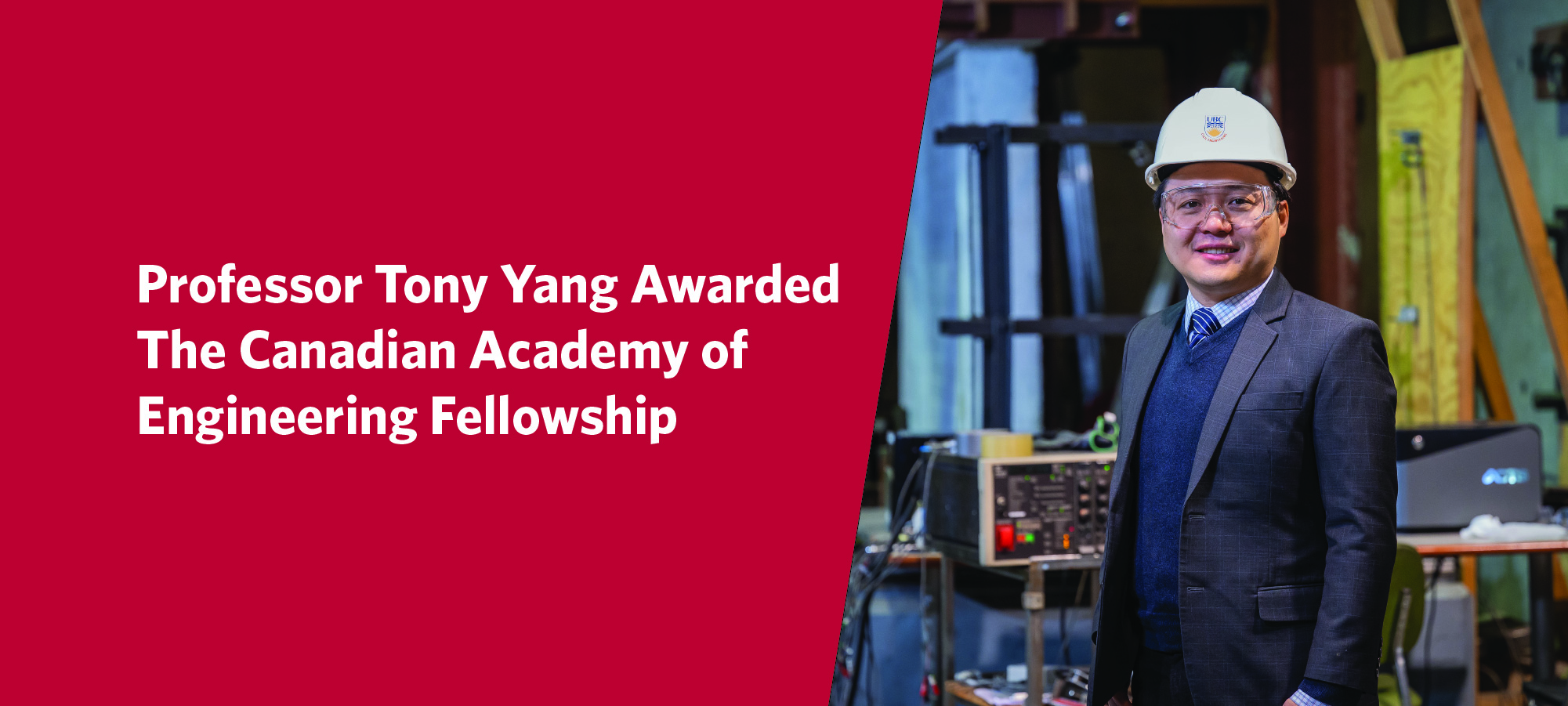
Professor Tony Yang has been honored with The Canadian Academy of Engineering (CAE) Fellowship in recognition of his exceptional contributions and dedicated service to the field of civil engineering.
The CAE Fellowship is bestowed upon individuals who have demonstrated exceptional contributions to engineering in various sectors, including business, academia, and government, and in diverse roles such as business management, executive management, technical expertise, and university faculty.
The CAE Fellowship nomination and election process selects deserving candidates through a rigorous evaluation. Current CAE Fellows nominate and elect new Fellows based on their distinguished achievements and career-long service. Nomination is mandatory as there is no direct application process. Each year, up to 50 nominations are chosen to proceed as Active Fellows, with an additional category of International Fellow available to non-residents.
Dr. Yang’s election to the Canadian Academy of Engineering is a testament to his remarkable contributions and exemplary career in the field of engineering. His research focuses on improving the structural performance through advanced analytical simulation and experimental testing.
“With the rapid increase in worldwide population, we need to build infrastructure more efficiently, cost effectively and more environmentally friendly. At the same time, we need to maintain the existing infrastructure to ensure they are safe against aging and other natural disasters,” said Dr. Yang.
Dr. Yang played a pivotal role in the seismic evaluation of LA Live, previously the tallest steel plate shear wall in the world, and contributed to the development of the next-generation performance-based design and assessment framework for seismic applications. His notable projects include the seismic upgrade of the Museum of Anthropology (MOA) using base isolation, a pioneering approach in Canadian museums, and the seismic design of the Tsawwassen First Nation Elder Center, utilizing high-performance dampers for structural resilience.
Addressing another critical challenge in the engineering field, Dr. Yang highlighted the scarcity of skilled workers in the industry. This is where the enhancement of construction robots and the utilization of AI in the field become crucial.
“We are developing the next generation structural and robotic construction technologies. Soon, there will be paradigm shift in new structural system which are high performance and will be constructed with autonomous construction technology”, said Dr. Yang.
He envisions future infrastructure equipped with the latest sensing and AI technology, constructed using next-generation high-performance structural systems, and built more efficiently through the utilization of the latest robotic technologies. By realizing this vision, Dr. Yang aims to transform the world, making it a safer, more sustainable, and technologically advanced place for generations to come.
